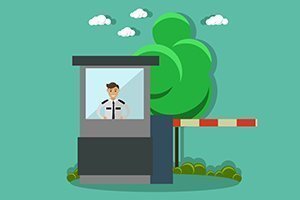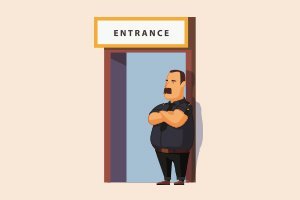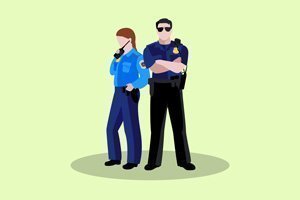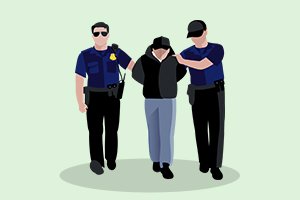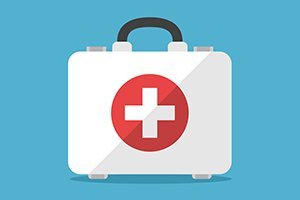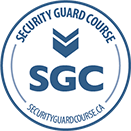On June 5, 2025, Ontario’s Bill 10: Protect Ontario Through Safer Streets and Stronger Communities Act received Royal Assent. One of the purposes of this act is to address the ongoing problem with illicit drug activities in public and private spaces, including event venues such as night clubs and concert venues. It does this by holding property owners and landlords directly responsible for the illegal activities of their patrons. This increased liability will no doubt have a significant impact on the role and responsibilities placed on the security companies and guards tasked with addressing these issues.
Understanding Bill 10
Schedule 8 of Bill 10 addresses the problem of illegal drug activity, specifically production and trafficking, on both commercial and residential premises. The legislation explicitly holds landlords and property owners criminally liable if they knowingly allow such activities to take place on their property. The penalties under Bill 10 are significant. Individuals can be fined up to $250,000, and corporations up to $1,000,000. Jail time is even possible under Bill 10.
While Bill 10 does not appear to hold employees, including security guards who work for the landlord directly liable, there will be an indirect impact on the expectations placed on them to identify and address drug-related offences on the property.
The Purpose of Bill 10
The sale and use of illegal drugs in our communities is a serious and growing problem. Overdoses and deaths are becoming more and more common, and often occur in private residences or private gathering spaces. Bill 10 is intended to address this by compelling the property owners and landlords to take significant proactive measures to prevent drug-related activity on their premises. In order to do this, landlords will be looking to their security staff for support.
The Indirect Impact On Security Guards
While security guards themselves do not appear to be criminally liable under Bill 10, their actions related to preventing drug-related crime will directly impact the liability exposure of the landlord. Liability protection is the primary reason why security is hired in the first place, and this new liability must also be accounted for in the role. Expect security guards working in night clubs and other event spaces to:
- Be highly proactive and vigilant in recognizing signs of drug use or trafficking.
- Intervene quickly and decisively to prevent or stop drug-related activities.
- Quickly report incidents to both venue management and law enforcement.
- Collect and provide detailed and accurate documentation for all drug-related incidents.
The new reality is that even though the security guards themselves might not face penalties, failure to meet these expectations can lead to their employer facing serious legal consequences. Therefore, security guards play a crucial role in demonstrating that the property owner has taken “reasonable measures”, as stated in Bill 10, to prevent drug activities. Unfortunately, Bill 10 fails to clearly define what constitutes a reasonable measure. So for now, it is somewhat open to interpretation.
Security Roles and Responsibilities Under Bill 10
To illustrate the increased responsibilities, here are a few practical examples:
Scenario 1: Drug Use Observed at a Music Festival
While on patrol, a security guard notices a small group of patrons openly consuming illegal substances. In order to meet the heightened expectations, the guard must:
- Approach the individuals and direct them to either stop or leave the premises.
- The incident must be promptly reported to event management and police.
- A detailed report must be completed, documenting the individuals involved, time, location and enforcement actions taken.
Scenario 2: Drug Sales Detected at a Sporting Event
While on patrol, a security guard observes the exchange of illicit substances for money. Under the heightened employer expectations:
- The guard should observe the interaction, gather relevant information including descriptions, and immediately notify the police.
- Maintain a safe observation distance and await the arrival of police.
- Provide thorough documentation of the incident, including the descriptions of the individuals, observations and actions taken.
Scenario 3: Backstage at a Live Concert
A security guard working backstage observes crew members using drugs. The guard must:
- Promptly inform event management and police of the incident.
- Collect and document evidence related to the incident.
- Prepare a detailed report and provide all documentation of what was observed and actions taken, for management and police follow-up.
Additional Expectations for Security Companies
With the increased landlord liability under Bill 10, security companies will be required to update their protocols, including:
- Clearly outlining the roles and responsibilities of their security staff relating to drug control and interventions in their contracts.
- Develop and deploy comprehensive training programs to ensure that their employees have the knowledge and skills to safely and effectively respond to drug-related incidents.
- Update their Standard Operating Procedures (SOPs) to clearly define intervention and reporting protocols.
- Building strong relationships of cooperation and coordination with local public law enforcement agencies, to ensure effective and efficient responses to incidents.
Next Steps for Security Companies
To ensure compliance and readiness for Bill 10, security companies should:
- Conduct thorough reviews of existing client agreements, explicitly clarifying their responsibilities regarding drug-related activities.
- Develop and begin implementing specialized training programs for their security guards, covering topics such as drug identification, intervention techniques, legal obligations and authorities, and documentation.
- Establish detailed SOPs to provide their guards with clear guidance on how to respond and document incidents.
- Regularly review and assess operational risks and preparedness.
- Reach out and begin building strong relationships with clients, community stakeholders, and law enforcement.
Next Steps for Security Guards
Security guards working at sites impacted by Bill 10 should:
- Seek out and participate in available training programs, and continuously update their knowledge of their enhanced responsibilities and response expectations.
- Understand the implications of their role in protecting the landlords from liability under Bill 10.
- Strengthen their skills in observation, communication, and documentation.
- Build strong relationships and communication with colleagues, management, and police to ensure coordinated and effective responses to incidents.
Conclusion
While Bill 10 directly holds landlords liable, the ripple effect significantly increases the responsibilities placed on security companies and the security guards they employ. Guards must enhance their knowledge and skills related to drug sales and use, and become more vigilant in detecting and addressing incidents at their sites. Security companies, in turn, must support their guards through robust training, clear SOPs, and efficient coordination with clients and law enforcement.
All stakeholders must adapt to these new expectations. Not only to protect landlords from liability, but also to improve public safety by reducing the sale and use of illegal drugs. That is, after all, what Bill 10 seeks to accomplish. By embracing these changes, and making proactive enhancements, the security industry in Ontario will help create safer communities for everyone, while also protecting their clients.
References
Ontario Legislative Assembly. (2025). Bill 10, Schedule 8: Measures Respecting Premises with Illegal Drug Activity Act, 2025. Retrieved July 16, 2025, from https://www.ola.org/en/legislative-business/bills/parliament-44/session-1/bill-10#BK10

